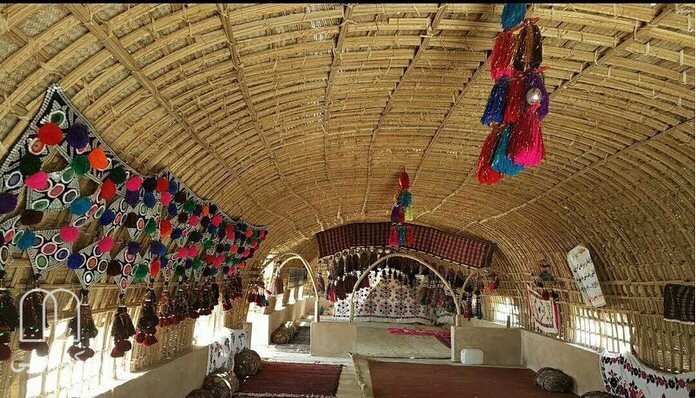Eco-lodge complexes inaugurated in Sistan-Baluchestan

TEHRAN - Three eco-lodge complexes have recently been inaugurated in southeastern Sistan-Baluchestan on the occasion of the National Day of Village and Nomads, observed annually on October 7, a local tourism official has announced.
With a total budget of three billion rials ($71,400 at the official exchange rate of 42,000 rials per dollar), two eco-lodges came on stream in Chabahar county in close collaboration with the private sector, Hossein-Ali Sarhadi said on Sunday.
An eco-lodge unit also opened in Taftan county with a budget of 17 billion rials ($404,700), the official added.
A total of 50 people can be accommodated in these units, and 10 people are directly employed, he noted.
The province currently has some 51 eco-lodge units active, and there should be a boom in ecotourism following the resumption of tourism, he mentioned.
“The majority of my travels during my tenure has been to Sistan-Baluchestan, which I consider as a safe province with significant values in terms of culture, history, handicrafts, and tourism.”
The collective province -- Sistan in the north and Baluchestan in the south -- accounts for one of the driest regions of Iran with a slight increase in rainfall from east to west, and an obvious rise in humidity in the coastal regions. In ancient times, the region was a crossword of the Indus Valley and the Babylonian civilizations.
The province possesses special significance because of being located in a strategic and transit location, especially Chabahar which is the only ocean port in Iran and the best and easiest access route of the middle Asian countries to free waters.
The vast province is home to several distinctive archaeological sites and natural attractions, including two UNESCO World Heritage sites, namely Shahr-e-Soukhteh (Burnt City) and Lut desert.
The tourism ministry has set a target to help build 2,000 eco-lodges by 2021, believing such guest houses could cater to sustainable development and job creation in the countryside and rural areas. Experts say each eco-lodge unit generates jobs for seven to eight people on average so that the scheme could create 160,000 jobs.
The culturally diverse country never disappoints visitors when it comes to eco-tourism, sightseeing, and even tribal tourism as it is home to many regional people including ones with Turk and Arab elements in addition to the Kurds, Baloch, Bakhtyari, Lurs, and other smaller minorities such as Armenians, Assyrians, Jews, and others.
ABU/AFM

Leave a Comment